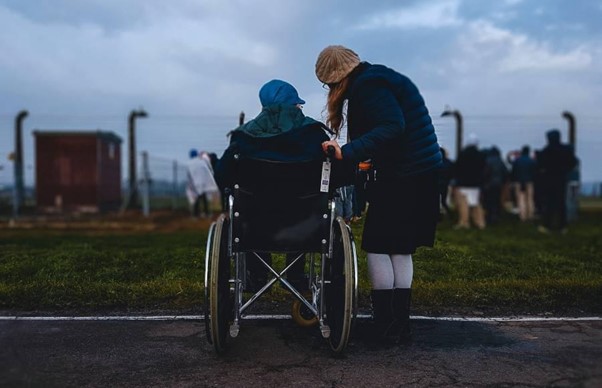In this article:
You generally need to be at least 18 years old to book a hotel room. Depending on their policies, some hotels may require guests to be 21 or older.
Securing a hotel room appears straightforward, yet age requirements can be decisive. Age restrictions are in place to ensure legal accountability and to protect the hotel’s interests.
As travelers plan their trips, understanding these limits is imperative, especially for younger adventurers eager to explore independently.
Young adults, typically those fresh out of high school or college, often face the challenge of navigating these rules.
The hospitality industry recognizes the importance of catering to all guests while maintaining a standard that aligns with legal and safety obligations.
This blend of accessibility and regulation maintains a balance that respects the autonomy of young guests while safeguarding the establishments’ integrity.
Introduction to Hotel Policies
Venturing into the world of travel inevitably involves accommodations, and understanding hotel policies is paramount for a seamless experience.
Hotel policies dictate many aspects concerning your stay, from cancellation procedures to pet allowances. However, one of the most crucial and often questioned policies centers on the minimum age to book a hotel room.
This policy not only reflects legal considerations but also hotel management’s discretion. Let’s dive into the specifics and unravel the age-related intricacies of booking your next hotel room.
Overview of Hotel Age Requirements
Hotels commonly set age restrictions to ensure guests can legally enter into a contract, typically requiring an individual to be at least 18.
However, this is not a universal standard, and often, age requirements may vary depending on the hotel’s location, brand, and target audience.
Some luxury and boutique hotels may set the bar higher, at 21 or even 25 years old, to ensure a certain level of maturity and financial responsibility.
Travelers need to verify age policies with the specific hotel before booking. Failure to meet these requirements can result in denied check-in, stranding you, and scrambling for alternative accommodations. Below are general guidelines:
| Hotel Category | Typical Minimum Age Requirement |
|---|---|
| Standard Hotels | 18 years old |
| Luxury Hotels | 21 years old |
| Boutique Hotels | 21-25 years old |
| International Chains | Varies by location |
Reasons Behind Age Restrictions
Hotel age restrictions are in place for several reasons:
- Legal Liability: Hotels must ensure guests are legally capable of agreeing, including being held accountable for any damages or legal issues during their stay.
- Risk Management: Younger guests often pose a higher risk regarding property damage or disruptive behavior, influencing hotels to impose age limits.
- Financial Responsibility: Guests must demonstrate they have the financial means to cover their stay and any incidental charges, tying in closely with age and presumed financial stability.
- Market Positioning: Certain hotels may cater to specific demographics, like business travelers or couples seeking romantic getaways, which can influence the age policies they enforce.
Understanding these factors helps guests appreciate the necessity of age requirements and the importance of adhering to them for a hassle-free hotel experience.
Review the hotel’s policy or call directly to clarify age restrictions before finalizing your plans.
Legal Age Requirements By Region
Embarking on an adventure or planning a serene getaway usually involves booking a place to stay, but it’s crucial to know that hotel policies on age can vary by region.
Legal Age Requirements by Region is not a mere triviality but a key factor in planning your trip. Young travelers, in particular, need to be aware of these regulations to avoid disappointment.
Let us navigate through the varying legal thresholds across the globe.
Minimum Age in the United States
The minimum age to check into a hotel in the United States is 18 years old. This is closely linked to the country’s legal definition of an adult.
However, some hotels and states may impose stricter rules, requiring guests to be at least 21. It’s always best to confirm the hotel’s age policy directly to avoid surprises upon arrival.
International Age Requirements
Step outside the United States, and the rules may change. In most parts of Europe and Asia, the minimum age for hotel check-in is typically 18. Yet, certain countries operate on their own unique protocols.
For instance, hotels in Japan and South Korea often require guests to be 20 years of age, in line with their legal coming-of-age standards.
Variations Within Countries and States
Even within a country, there can be variations. For example, in Canada, the age requirement can range from 18 to 19 years, depending on the province.
Specific hotels might also have their own policies, influenced by local laws or corporate guidelines. Always check with the hotel ahead of your trip for precise information.
To illustrate these differences, let’s look at a simplified table:
| Country/State | Minimum Age to Book a Room |
|---|---|
| United States | 18-21 (Varies by State/Hotel) |
| Canada | 18-19 (Varies by Province) |
| Europe (General) | 18 |
| Japan | 20 |
| South Korea | 20 |
Remember that individual hotels might adjust these general guidelines based on their prerogatives.
It’s essential to contact the accommodation in question or check their terms and conditions online to prevent any misinterpretation of the rules.
Factors Influencing Hotel Age Policies
Stepping into the world of travel and accommodation, one frequently asked question buzzes amongst young and independent travelers: “How old do you have to be to book a hotel room?” While the primary answer might seem straightforward, the underlying factors influencing hotel age policies weave a complex tapestry that varies widely from one establishment to the next.
Let’s explore what shapes these age requirements and how they might affect your next lodging experience.
Legal Liability and Risks
Minors, typically individuals under 18 years of age, present unique challenges to hotels regarding legal liability and risks.
Hotels must navigate a thicket of legal considerations, varying from state to state and even country to country.
These establishments are duty-bound to enforce rules that ensure the safety of their guests and the operational integrity of their business.
Below are key points to consider:
- Minors cannot enter into contracts, making formal agreements like booking a hotel room legally complex.
- Hotels must prepare for potential legal repercussions for minor guests, including situations requiring adult supervision or consent.
- Age thresholds may also mitigate risks related to alcohol consumption, property damage, and other liabilities.
Insurance and Operational Considerations
The age policy of a hotel intertwines tightly with its insurance requirements and the overarching mission to offer a secure, reliable service. Insurance providers often stipulate specific terms and conditions that include age restrictions.
These obligations influence how hotels draft their internal policies to align with coverage limitations and maintain operational fluency.
Here’s a snapshot of these critical facets:
- Insurance policies may set age limits as a precondition for coverage in accidents or damages.
- Operational policies, such as check-in procedures and access to amenities, often align with insurance mandates.
- High-risk facilities, such as gyms or swimming pools, can also dictate the necessity for age-based restrictions.
Corporate vs. Independent Hotel Policies
Hotel chains and independent hotels often showcase markedly different approaches to enforcing age restrictions. Corporate policies typically reflect a standard that aligns with brand reputation and consistency across various locations.
Conversely, independent hotels may operate with greater flexibility, tailoring their policies to the local context and clientele. Here’s an illustrative comparison:
| Corporate Hotels | Independent Hotels |
|---|---|
| Uniform age policies applied consistently | Customized policies based on demographics and local laws |
| May set the minimum age requirement at 21 years | May allow younger guests, often starting at 18 years |
| Centralized decision-making leads to a one-size-fits-all policy | A decentralized approach offers greater leniency and personalization |
Navigating Hotel Reservations As a Young Traveler
Unraveling the intricacies of hotel booking policies can be a challenge, especially for younger travelers eager to explore the world.
The minimum age requirement for booking a hotel room often varies by hotel and location, typically ranging from 18 to 21 years old.
But don’t let age restrictions dampen your spirit of adventure! With thoughtful planning and an understanding of the rules, you can successfully secure accommodation for your next great journey.
Tips for Underage Guests Seeking Accommodation
Young explorers, take heart! If you’re under the age limit for hotel reservations, consider these actionable tips:
- Contact the hotel directly to discuss their underage policies and any possible flexibility.
- Look for youth-oriented hostels or hotels that cater specifically to a younger demographic.
- Consider booking a stay through platforms that offer private accommodations, which may have different age requirements.
- Inquire about whether a co-signer or guarantor over the age of majority can assist in your booking.
- Always carry valid identification to prove your age and avoid any check-in misunderstandings.
Parental Consent and Precautions
Gaining the approval of your guardians is not just reassuring; it can be essential when traveling below the standard age requirement for hotels. Take the following measures to ensure a smooth accommodation experience:
- Obtain written consent from parents or legal guardians, possibly notarized, verifying their awareness and approval of your stay.
- Ensure a guardian is reachable throughout your trip if hotel staff needs to verify information or handle emergencies.
- Pre-arrange payment methods, such as credit card authorization, to cover the costs of your stay.
Alternative Accommodations for Younger Travelers
When traditional hotels are not an option, there are several alternative types of accommodations that welcome younger guests, including:
| Accommodation Type | Description | Typical Age Requirement |
|---|---|---|
| Hostels | Social lodging options with dormitory-style rooms | 16+ |
| Guesthouses | Private home-like settings offering a cozy atmosphere | 18+ |
| Airbnb | Online platform for renting private homes | 18+ (account holder) |
| Student Residences | Accommodations typically managed by educational institutions | No strict age limits (varies) |
Understanding and Negotiating With Hotel Management
Embarking on travel adventures brings excitement that’s hard to match, but age requirements can damper your plans when booking lodgings.
Hotel age policies might seem like immovable barriers, but you could turn the situation in your favor with the right approach.
This guide will arm you with strategies for discussing age restrictions, possibly securing exceptions, and ensuring your hotel check-in is as smooth as butter.
When and How to Discuss Age Policies With Hotels
The key to handling the minimum age requirement is to engage with hotel management early on. Before you make a reservation, start a dialogue directly with the hotel.
Here are a few steps to make the initial conversation count:
- Contact the hotel: A phone call or an email to the hotel’s front desk or reservations team is a good starting point. Personal engagement adds a human element to your request.
- Be transparent: Clearly state your age and the reason for your stay. Honesty helps build trust and may sway the hotel’s decision in your favor.
- Inquire about policies: Ask about the hotel’s standard age policy and if it’s consistent across their chain (if applicable).
Potential for Exceptions and Discretion
Not all hotel policies are set in stone. Management sometimes has the discretion to make exceptions, particularly if the guest presents a convincing case. Consider the following points to boost your chances:
- Credibility: Present yourself as a responsible individual. Having a credit card in your own name, a history of positive travel experiences, or professional reasons for traveling can help.
- Travel circumstances: Are there any extenuating circumstances that necessitate your stay? Sometimes, emergencies or special events can lead to leniency in policies.
- Supplementary documentation: Offering to provide additional identification or a signed parental consent form may assist in bending the rules in your favor.
Advice for Ensuring a Smooth Check-in Process
Preparation is key to avoiding snags at check-in. Ensure all your ducks are in a row with these tips:
| Tip | Action |
|---|---|
| Confirmation of Policy Exception | If granted an exception, request written confirmation to present upon arrival. |
| Documentation Ready | Have your ID, credit card, and any other relevant documents easily accessible. |
| Early Arrival | Arrive early to address any last-minute issues that may arise. |
Forewarned is forearmed, especially when you’re younger than the typical hotel guest.
Understanding, discussing, and sometimes negotiating with hotel management can bridge the age gap and secure a restful retreat in your desired hotel.
Keep these strategies in hand, and you’ll maximize your chances of a successful stay.
Conclusion
Navigating hotel age requirements doesn’t have to be daunting. Most establishments set the bar at 18 or 21, but policies vary. Always check ahead to avoid surprises.
Remember, your ID will be your ticket to a comfortable stay. Safe travels and happy hotel hunting!









